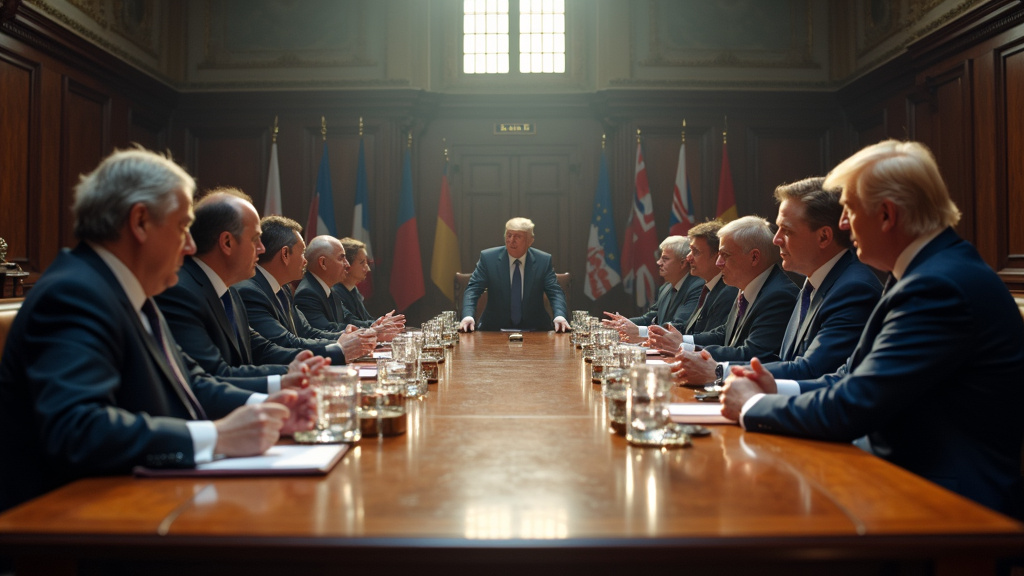In a significant diplomatic development, India has unequivocally condemned the violation of Qatar’s sovereignty following Israeli airstrikes in the Gulf nation’s capital, Doha. Prime Minister Narendra Modi, in a telephone conversation with Qatar’s Emir Sheikh Tamim Bin Hamad Al-Thani on Wednesday, September 10, 2025, expressed deep concern over the attacks and conveyed India’s strong stance against such actions. This statement comes amidst a backdrop of heightened regional volatility, following Israel’s actions targeting Hamas leadership in Doha, an event that has drawn sharp criticism from Qatar and raised wider geopolitical concerns.
Diplomatic Condemnation Amidst Regional Tensions
The core of India’s official reaction stemmed from a high-level phone call between Prime Minister Modi and Emir Al-Thani. During their conversation on September 10, 2025, Prime Minister Modi conveyed India’s condemnation of the “violation of the sovereignty of the brotherly State of Qatar”. He expressed deep concern over the recent attacks in Doha, underscoring India’s commitment to international law and respect for national sovereignty. This direct condemnation from the Indian Prime Minister highlights the gravity with which New Delhi views such incidents within a sensitive geopolitical region.
The Triggering Event: Israeli Strikes in Doha
The diplomatic exchange followed an Israeli military operation on September 9, 2025, which targeted senior Hamas leaders holding a meeting in Doha. Codenamed “Operation Summit of Fire,” the strikes were described by Israel as a precise action against Hamas operatives responsible for the October 7 massacre and orchestrating the war against Israel. However, the operation drew immediate condemnation from Qatar, which decried it as a “cowardly Israeli strike” and a “cowardly assault” that violated international law and Qatar’s sovereignty. Hamas also condemned the attack, labeling it a “heinous crime” and a “blatant aggression”. Reports indicated that while several Hamas members and a Qatari security official were killed, Hamas claimed its senior leadership and negotiation team survived the strike.
India’s Stance on Sovereignty and Diplomacy
Prime Minister Modi’s condemnation was consistent with India’s established foreign policy principles. He reiterated India’s support for resolving issues through dialogue and diplomacy, emphasizing the need to avoid escalation. “India stands firmly in support of peace and stability in the region, and against terrorism in all its forms and manifestations,” Modi stated. This stance reflects India’s broader approach to international relations, prioritizing peaceful conflict resolution and upholding the territorial integrity and sovereignty of all nations. The Ministry of External Affairs had also previously voiced “deep concerns” over the impact of the strikes on regional security, urging restraint and diplomacy.
Regional Context and Implications
The events in Doha occurred against a backdrop of escalating tensions in the current geopolitical climate. On the same day India condemned the Doha strikes, Israel also launched airstrikes in the Yemeni capital, Sanaa, and the al-Jawf governorate. These strikes, which reportedly caused casualties and targeted civilian areas, were stated by Israel as a response to Houthi drone attacks. The dual strikes underscore the volatile trending situation in the region, with actions in one theater potentially fueling conflict in others. Qatar’s role as a key mediator in the Gaza conflict, alongside the US and Egypt, adds another layer of complexity to the situation, making the violation of its sovereignty a particularly sensitive issue with implications for ongoing peace efforts.
India-Qatar Strategic Partnership
India’s firm diplomatic stance is also framed within the context of its strong and evolving relationship with Qatar. The two nations elevated their bilateral ties to a “Strategic Partnership” earlier in 2025, signifying deep cooperation across trade, energy, security, and geopolitical matters. Qatar is a significant energy supplier to India and a crucial partner in energy security, with substantial investments in the Indian economy. This established strategic partnership reinforces the importance of India’s position in supporting Qatar’s sovereignty and regional stability.
Conclusion
Prime Minister Modi’s strong condemnation of the violation of Qatar’s sovereignty signifies India’s unwavering commitment to international norms and its proactive role in advocating for peace and stability in the Middle East. As the region grapples with escalating tensions, India’s call for dialogue and diplomacy, coupled with its opposition to terrorism and respect for national sovereignty, underscores its position as a responsible global actor. The current news cycle reflects a complex geopolitical landscape, where adherence to diplomatic principles remains paramount for de-escalation and the pursuit of lasting peace.















